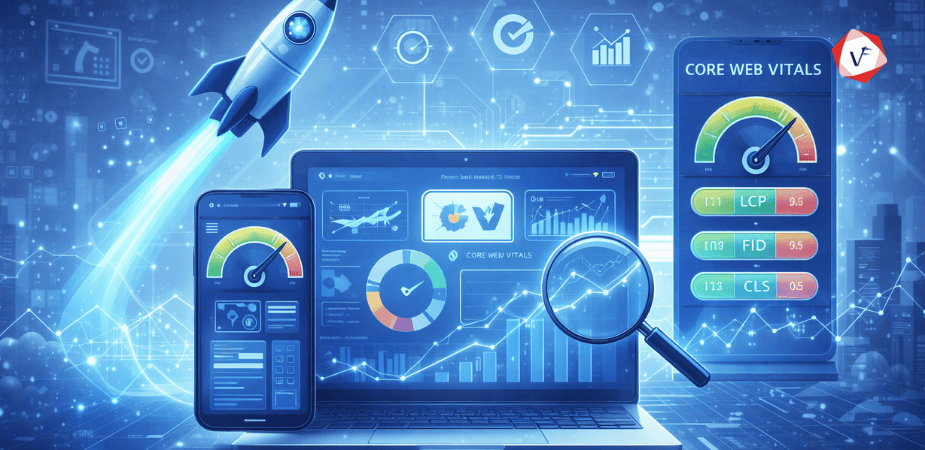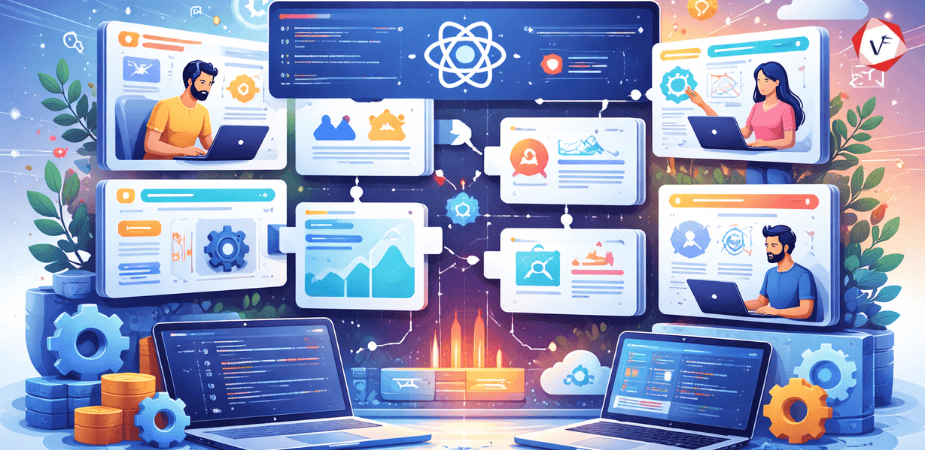- September 29, 2025 6:50 pm
- by Safvana
- September 29, 2025 6:50 pm
- by Manek
The rise of Artificial Intelligence (AI) has led to many discussions about its potential to transform industries and even replace human workers. One area where this conversation is particularly relevant is programming. As AI becomes more capable, it's natural to wonder whether it will eventually replace the need for human programmers. But is that actually the case? Will AI take over your programming job? Let's dive into the topic and explore the future of programming in an AI-driven world.
Artificial Intelligence, or AI, refers to the ability of machines to perform tasks that would typically require human intelligence. This includes things like learning, reasoning, problem-solving, and even language understanding. In the context of programming, AI can assist with various tasks such as writing code, finding bugs, optimizing processes, and even generating entire applications.
We've already seen AI tools like GitHub Copilot, which helps developers write code by suggesting lines or completing functions. Another example is AI-based debugging tools that can automatically identify and fix bugs in code. With these advancements, it's easy to assume that AI might soon take over the programming job entirely. But before jumping to conclusions, let's break down the situation and understand it better.
To understand whether AI will replace programmers, it's important to first look at the role of programmers today. Programmers are not just code monkeys who type commands into a computer. Their job involves much more than writing code.
Programmers spend a large part of their day solving complex problems. Whether it's optimizing an algorithm, designing a system architecture, or figuring out how to make a user-friendly interface, programming requires creativity, logic, and critical thinking. AI may be able to help with some of these tasks, but it's unlikely that it can replace human creativity entirely.
Modern programmers don't work in isolation. They collaborate with designers, product managers, data scientists, and other stakeholders to create software that meets real-world needs. This involves understanding the requirements of users, discussing project scope, and adapting to changes in real time. AI tools, on the other hand, tend to be more focused on technical aspects of the job, such as generating code or fixing bugs, and cannot yet engage in the kind of human interaction and adaptability that a team of programmers can provide.
Programming isn't just about knowing the syntax of a programming language. It's about understanding the problem you're trying to solve, the environment you're working in, and the specific constraints of the project. Programmers often need to think outside the box to come up with solutions that may not be immediately obvious. While AI can analyze data and suggest solutions, it may lack the intuition and deep understanding of the context that human programmers bring to the table.
Programming is not just a technical job; it often involves ethical decision-making. For instance, when developing AI or data-driven systems, programmers need to consider privacy, fairness, and security. These are areas where human judgment plays a critical role. AI, no matter how advanced, may struggle with making ethical decisions without human input.
While AI tools are improving rapidly, there are still significant limitations to what AI can achieve in programming. Some of these limitations include:
AI is based on patterns and data, which means it can only do what it's been trained to do. While it can generate code based on existing examples, it cannot come up with truly original ideas. Programming often requires out-of-the-box thinking and innovative solutions, and this is something AI cannot replicate.
AI can struggle to understand complex problems in real-world contexts. For example, while it might be good at writing simple code or identifying bugs, it may not fully grasp the nuances of a problem that requires an in-depth understanding of business goals, user needs, or technical constraints. In these cases, human programmers are still needed to provide context and make decisions that AI cannot.
AI tools like code generation assistants can be helpful, but they're far from perfect. The code generated by AI may not always be efficient, secure, or maintainable. Even if AI tools can identify bugs, it often requires human intervention to understand the root cause of the problem and fix it effectively.
As mentioned earlier, ethical considerations are important in programming. AI systems can sometimes make decisions that have unintended consequences. Human programmers need to ensure that AI systems are designed with ethics in mind, especially when it comes to data privacy, discrimination, and accountability.
Rather than replacing programmers, AI is likely to change how they work. Instead of spending all their time on repetitive tasks like writing boilerplate code or debugging simple issues, programmers will be able to focus on more complex and creative aspects of software development. Here are a few ways AI is already changing the role of programmers:
AI is excellent at automating tasks that are repetitive and time-consuming. For example, AI tools can help programmers with tasks like writing unit tests, generating documentation, or even refactoring code. By automating these tasks, AI allows programmers to focus on the more creative and problem-solving aspects of their job.
AI-powered code review tools can help programmers spot errors, vulnerabilities, and inefficiencies in their code. These tools can also suggest best practices and improvements, helping programmers write better code faster.
As AI continues to evolve, new roles will emerge within the programming field. For example, AI specialists will be needed to train, test, and improve AI systems. Similarly, programmers will need to develop expertise in using AI tools effectively to enhance their productivity. The future of programming will likely involve a combination of human and AI collaboration rather than AI replacing programmers entirely.
So, what does the future hold for programmers in an AI-driven world? While it's unlikely that AI will completely replace human programmers in the near future, it will undoubtedly transform the profession. Here are some key trends to watch for:
Instead of replacing programmers, AI will work alongside them to improve efficiency and productivity. Tools that assist with coding, debugging, and testing will become more powerful, enabling programmers to focus on higher-level tasks. However, human creativity and problem-solving will still be essential.
As AI continues to grow in importance, there will be a greater demand for programmers who can work with AI technologies. Programmers will need to develop new skills, such as machine learning, data science, and AI ethics, to stay relevant in an AI-driven job market.
The future of programming will likely be a collaborative effort between humans and AI. Programmers will use AI tools to automate mundane tasks, while still relying on their own expertise for creativity, decision-making, and problem-solving. This collaboration will allow programmers to accomplish more in less time.
While AI may reduce the need for certain types of programming work, it will also create new opportunities. For instance, the demand for AI training data, AI ethics experts, and AI-powered software developers will rise. Programmers who adapt and learn how to work with AI will have more opportunities than ever.
Will AI take over your programming job? In short, no. While AI is certainly changing the way we work and automating many aspects of programming, it is unlikely to fully replace human programmers anytime soon. AI can assist with repetitive tasks, enhance productivity, and help improve code quality, but human creativity, problem-solving, and ethical judgment are still essential in programming.
The future of programming will be shaped by a collaboration between humans and AI. Programmers who adapt to new technologies and learn to work alongside AI will find themselves in high demand. Far from replacing programmers, AI will empower them to be more productive, creative, and efficient in their work.
So, rather than fearing that AI will take your job, embrace it as a tool that can make you a better programmer. The future is bright for those who are willing to evolve with the times and use AI to their advantage.
Guaranteed Response within One Business Day!
What is Infrastructure as Code (IaC)?

Front-End Performance in 2026: What Core Web Vitals Actually Mean for Your Site

What is FinOps?

Micro-Frontends: Breaking Down Monolithic React Applications
.png)
Zero-Trust Security Models for SaaS: What You Need to Know